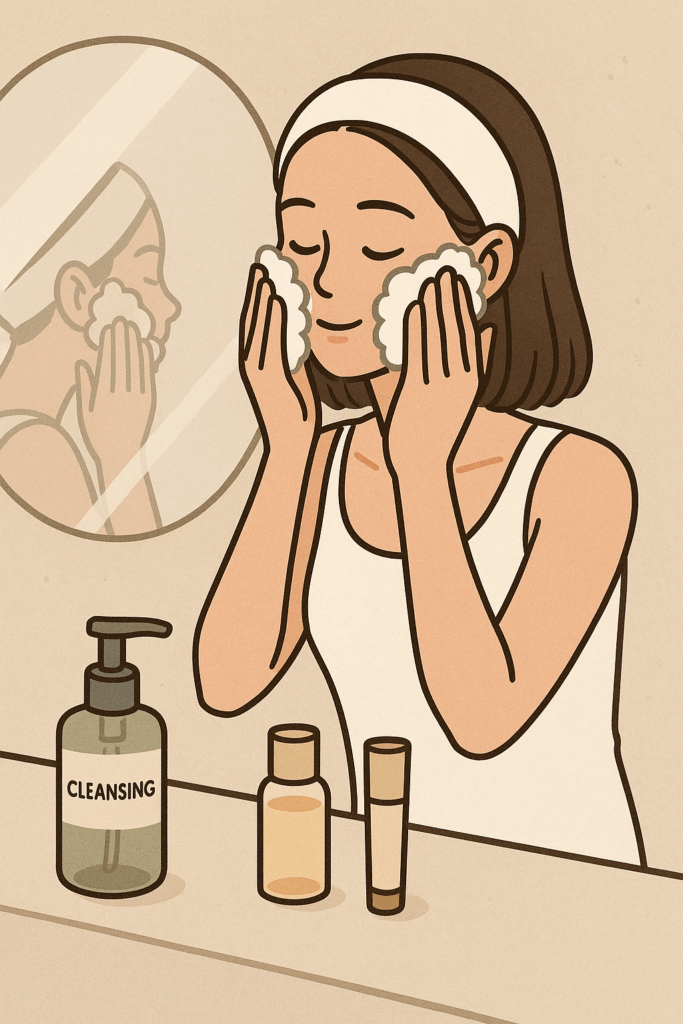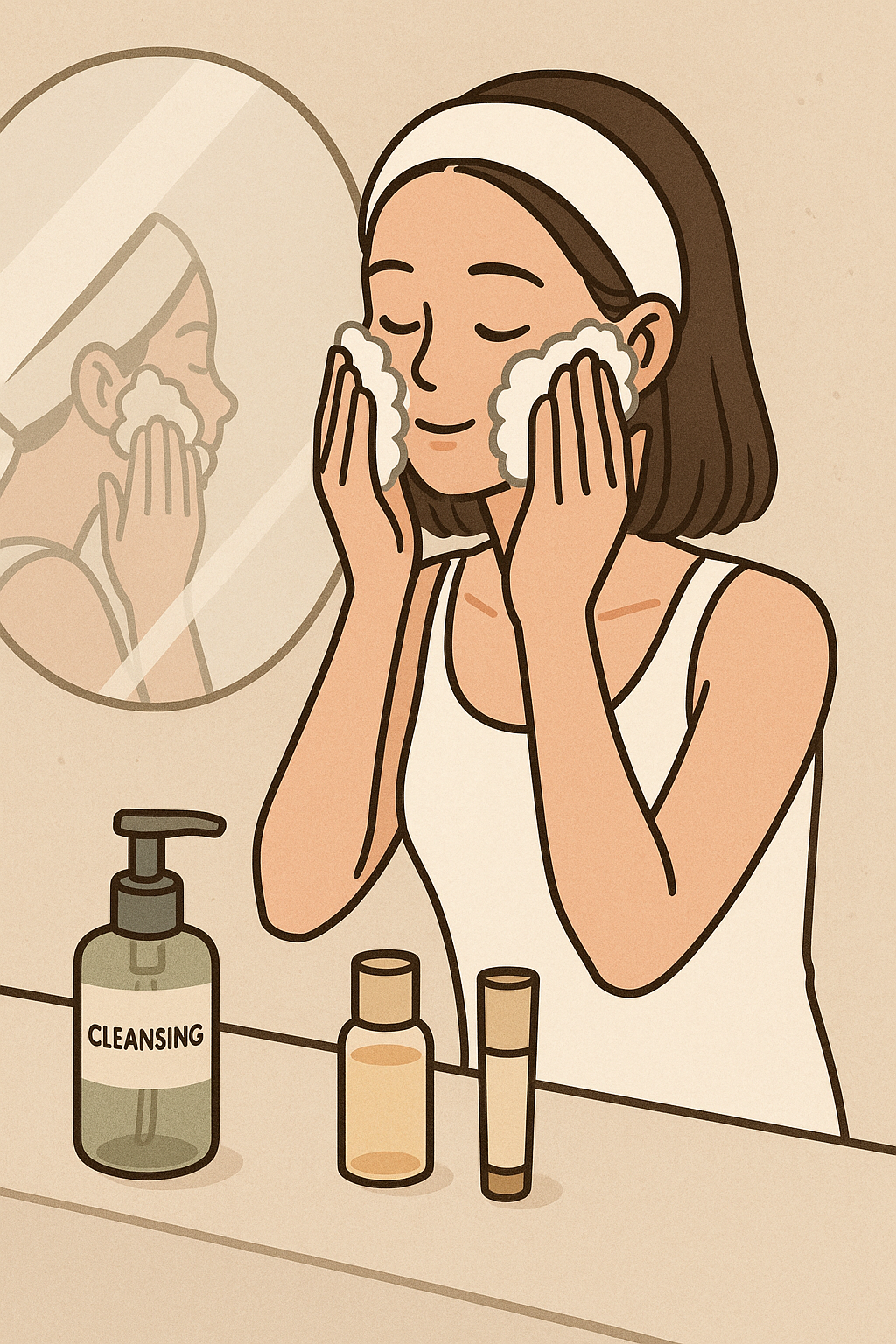Have you ever followed your cleansing routine perfectly and still noticed breakouts or dryness? Sometimes, skin issues may come not from products themselves, but from how we use them. Reviewing your cleansing habits could help you understand what truly supports your skin instead of stressing it.

1. Overwashing May Weaken the Skin Barrier
Cleansing too often or with harsh formulas could strip away natural oils and protective lipids. This may leave the skin vulnerable to irritation, dryness, or redness.
- Limit washing to twice a day — morning and evening — unless heavily sweating or exposed to pollution.
- Choose mild, pH-balanced cleansers rather than aggressive foaming types.
- Rinse with lukewarm water; hot water may worsen dryness.
2. Underwashing or Improper Rinsing Could Cause Breakouts
When makeup, sunscreen, or oil residues stay on the skin, they may clog pores and encourage blemishes.
- Double cleansing could help at night — start with an oil or balm, then follow with a gentle water-based cleanser.
- Focus on hairline, jawline, and nose creases where buildup tends to linger.
- Rinse thoroughly to prevent leftover product film.
3. Harsh Tools and Rubbing May Irritate the Skin
Over-scrubbing or using rough towels may trigger microtears or sensitivity, especially for delicate skin.
- Pat skin dry with a soft towel instead of rubbing.
- Use gentle cleansing pads or hands rather than brushes for daily use.
- Exfoliate lightly one to two times per week if your skin tolerates it well.
4. Cleansing Products Should Match Skin Type
Each skin type benefits from a tailored cleansing approach. Matching your cleanser to your skin’s current needs could reduce imbalance.
- Oily skin: a mild foaming or gel cleanser may help control excess sebum.
- Dry skin: cream or lotion-based cleansers may support moisture retention.
- Combination skin: balancing cleansers may help maintain even hydration.
- Sensitive skin: fragrance-free and sulfate-free formulas tend to work best.
5. Post-Cleansing Care Matters
How you treat your skin after cleansing could affect barrier repair and hydration.
- Apply toner or essence immediately after washing to replenish moisture.
- Seal hydration with a gentle moisturizer while the skin is still slightly damp.
- Morning routines should always include sunscreen to protect from environmental stress.
🌟 Conclusion
Even the best cleanser can backfire if used the wrong way. Small adjustments — such as gentler washing, proper rinsing, and barrier support — may reduce irritation and help skin regain balance. Consistency, not intensity, is often what keeps skin clear and calm over time.
References and Further Reading
- American Academy of Dermatology — Proper Face Washing Techniques
- Harvard Health Publishing — Understanding Skin Barrier Function
- Mayo Clinic — Acne and Skincare Basics
Disclaimer
This article is for informational purposes only and not medical advice. Skin responses to cleansing may vary depending on individual type and condition.
